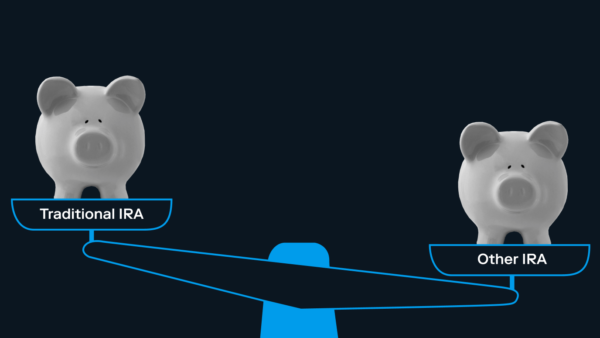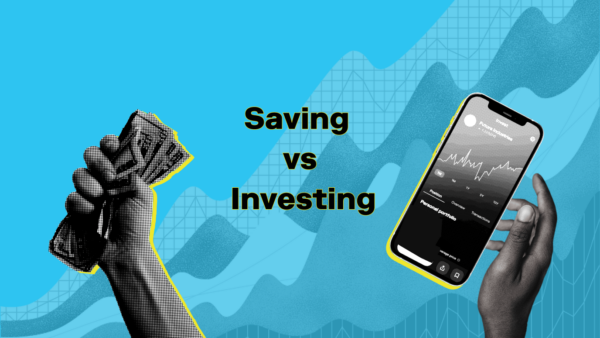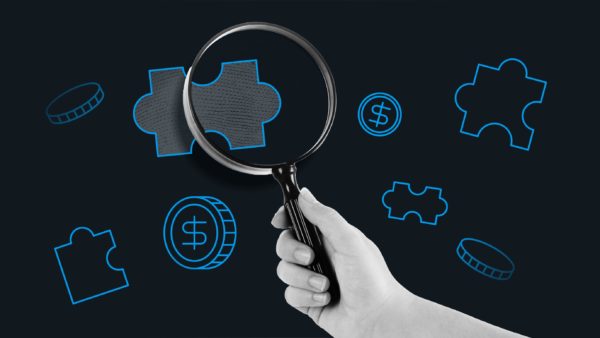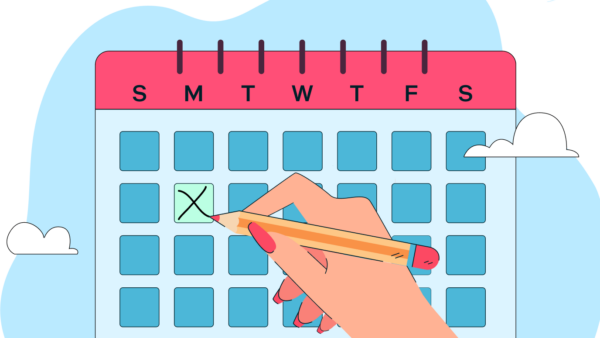Jun 14, 2021
How to Support the LGBTQ+ Community and Its Businesses
An NGLCC director weighs on developing diverse policies and leadership, as well as voting with your dollars.

As we celebrate Pride month, Stash hopes to recognize the things that make the LGBTQ+ community diverse and unique. We’re also examining longstanding issues the community faces as it gains financial equality with the mainstream.
To help us understand some of these challenges, Stash spoke with TJ Chernick, the executive director for National Gay and Lesbian Chamber of Commerce’s (NGLCC) New York chapter. The organization, founded in 2002, is the only one that certifies queer-owned businesses to qualify for supply chain contracts with large corporations. Many of these contracts are set aside to support diverse businesses, which can in turn help these smaller companies thrive and grow.
In our discussion, Chernick talked about how people can support the LGBTQ+ community by working with queer-owned businesses, as well as investing in businesses that help to advance the queer community through progressive polices. We also spoke with Chernick more generally about the biggest financial hurdles the LGBTQ+ community still faces.
Following is an edited version of the conversation.
What is NGLCC’s mission, why is it important for the LGBTQ+ community, and how did you get involved?
We are the only organization in the U.S that certifies businesses as LGBTQ+. In the same way you can be a woman-owned business, a veteran-owned business, a minority-owned business, or a disabled-owned business, we work to make sure that queer-owned businesses get the same access to opportunities that they do.
There are an estimated 1.4 million LGBTQ+ business owners in the U.S., and they contribute approximately $1.7 trillion to the U.S. economy, according to our internal research. So imagine the impact if all LGBTQ+ business owners stood together and were counted.
There is this common misperception that LGBTQ+-owned businesses are the cliche hair stylists and wedding planners. There are definitely those, but there are also construction companies, jet engine engineers, chemical engineers, and all kinds of other cool things.
The accreditation is not counted federally yet, as with partner organizations like the Women’s Business Enterprise National Council (WBENC) and National Minority Supplier Diversity Council (NMSDC). Our mission is to ensure every city, state, and corporation takes advantage of the amazing LGBTQ+ companies out there.
My background is in international human rights, and when I started working with LGBTQ+ entrepreneurs, I found it incredibly inspirational, helping them share their stories and working to elevate them. To create your own world in a world that is not built for you takes something special. When you put these entrepreneurs in a room, and create a space for them to elevate each other, there is nothing like it.
How can people support LGBTQ+ businesses, or businesses that support the LGBTQ+ community?
The first thing to know is that the money you spend is a vote, and every dollar you spend is a ballot. You should spend accordingly, and do your research accordingly. You can find LGBTQ+- owned or supported businesses through any NGLCC affiliate or chamber around the country. Also look at the Human Rights Campaign (HRC) Corporate Equality Index, which measures whether a publicly-traded corporation is being inclusive both internally and externally. It is not just about being outward facing in advertising. It is also important to be inwardly facing to support the talent a company has, as well as ensuring the company’s supply chains are inclusive of LGBTQ+ businesses.
People need to put their money where their mouth is, and that is a really great way to make the determination.
How can people invest in public companies that have forward-thinking policies about LGBTQ+ people and workers?
It’s important to think about whether a company has diverse leadership.There is the common adage that a company can only be as diverse as its leadership. There are many companies that work with organizations like NMSDC and Out Leadership that ensure diverse talent. Out Leadership’s mission is to elevate LGBTQ+ talent in general, but also within publicly traded companies. And they do direct work with Fortune 500 companies.
What can companies do to foster LGBTQ+ inclusion and create non-discrmination policies, as well as more equitable benefits, and better internal and public commitment to LGBTQ+ equality?
One way is to hire an LGBTQ+-owned-and-operated consultancy that does this work. It’s hard to create effective policies that support marginalized communities if companies don’t consult the communities themselves. This can be especially true for Trans individuals, as well as Black, Indigneous, and People of Color (BIPOC) and Asian American and Pacific Islander (AAPI) communities. If you aren’t getting direct insight from them about the things you want to implement, you won’t be that effective.
There are numerous consultants and companies that can do trans and gender nonconforming talent retention in the workforce. They can do BIPOC sensitivity and LGBTQ+ benefit consulting to make sure HR policies and benefits are inclusive. All of these things are accessible.
What are the biggest challenges for LGBTQ+ people with regard to work and creating businesses?
When it comes to LGBTQ+ people creating businesses, there are 35 states in which a bank manager can say, “We don’t loan money to your kind”—LGBTQ entrepreneurs. That is still really limiting, and we still have a journey ahead of us.
In the workplace, the upward mobility of LGBTQ+ people is an issue. If a person does not see a road upward, that is really damaging to that employee. That is something for companies to consider. LGBTQ+ leadership is important, but also being able to see yourself in a company, and being able to move upwards. If an LGBTQ+ person can’t bring their full self to work comfortably, then the company is not getting their full investment (in that employee), which is a bad business move frankly.
There’s a stereotype of LGBTQ+ having more discretionary income, can you weigh in on that?
This is a myth. We are talking about the entirety of the LGBTQ+ community, and each part faces unique challenges. We still have so much to do to help the Trans part of our community, and the BIPOC and AAPI parts, all of which face their own particular difficulties. Women are historically paid less, and lesbians of color even less. And if you are Trans, trying to get a job itself will come with its own challenges. Our community is so intersectional, and each intersection faces its own struggle.
What are the biggest challenges for the LGBTQ+ community regarding saving and investing?
For so long, queer people did not have access to full marrriage, and there is a history of having to plan around the system to protect one another. That is everything from wills to trusts and estates, and having to consider all the different loopholes to make sure your partner is safe without that one thing—marriage. When it comes to investing and planning, we have a history of working the system to protect the ones we love.It is exciting that younger generations, such as Gen Z, have access to so much information and knowledge and resources about investing. I didn’t know much about it until I was in high school and listened to Suze Orman. That was the first time I thought I needed to start investing. Gen Z’s ability to talk about money and finance differently is so powerful—whether that is salary or investing, it helps spread the word that things are possible, and by investing early you are starting to take good care of your future self.
Related Articles

15 Largest AI Companies in 2024

The 12 Largest Cannabis Companies in 2024

What Is a Traditional IRA?

Saving vs. Investing: 2 Ways to Reach Your Financial Goals

How To Invest in the S&P 500: A Beginner’s Guide for 2024

Stock Market Holidays 2024





